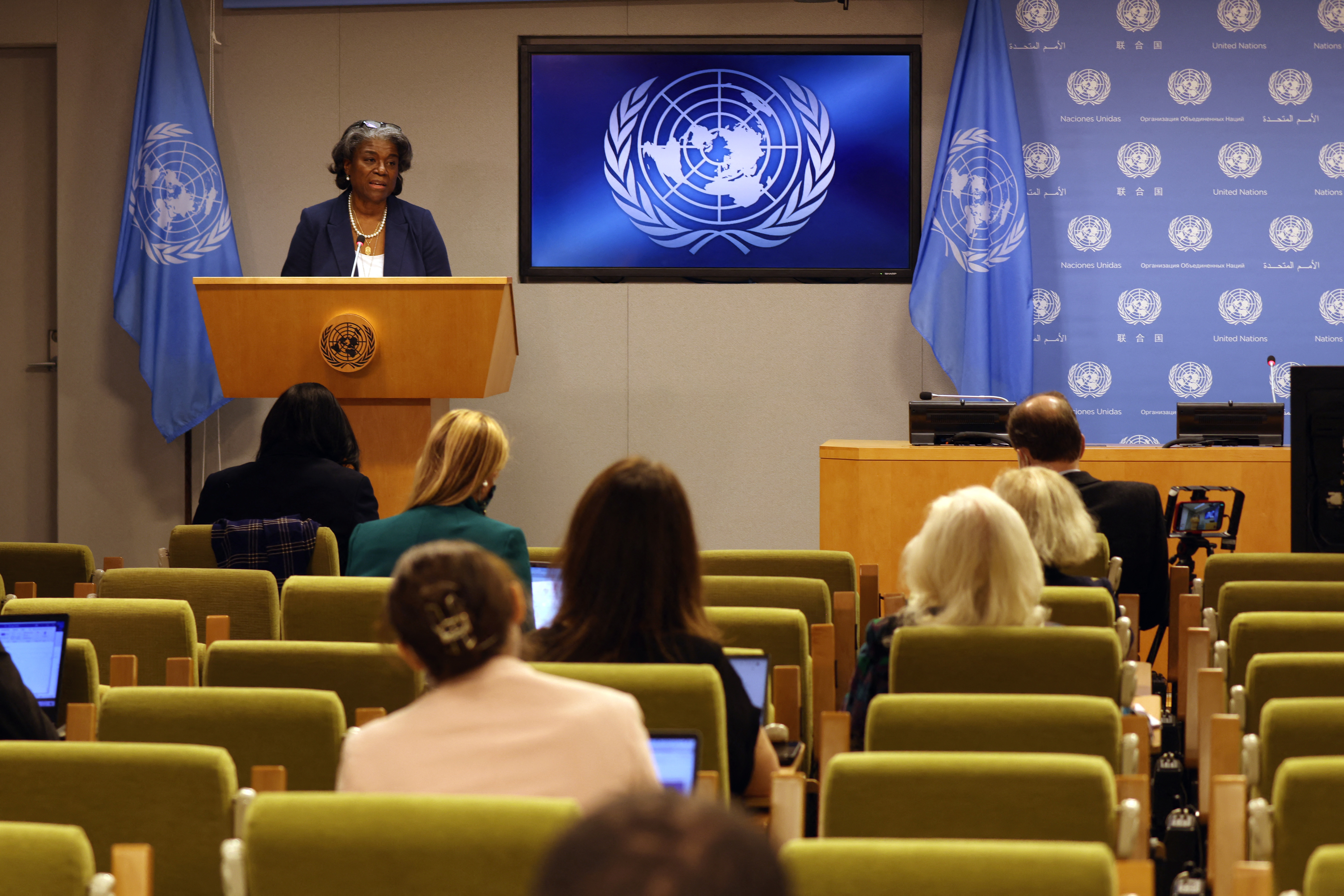US ambassador to UN: No future for Bosnia's two entities outside of BiH

Among the main obstacles to progress in Bosnia and Herzegovina are corruption and “politicians who focus narrowly on ethno-nationalist goals,” United States ambassador to the United Nations, Linda Thomas-Greenfield, said after Bosnia’s international administrator presented his latest report on the implementation of BiH’s peace agreement to the UN Security Council on Tuesday.
Oglas
Više tema kao što je ova?
Kakvo je tvoje mišljenje o ovome?
Učestvuj u diskusiji ili pročitaj komentare
Oglas
Kakvo je tvoje mišljenje o ovome?
Učestvuj u diskusiji ili pročitaj komentare
Oglas





 Srbija
Srbija
 Hrvatska
Hrvatska
 Slovenija
Slovenija



























































